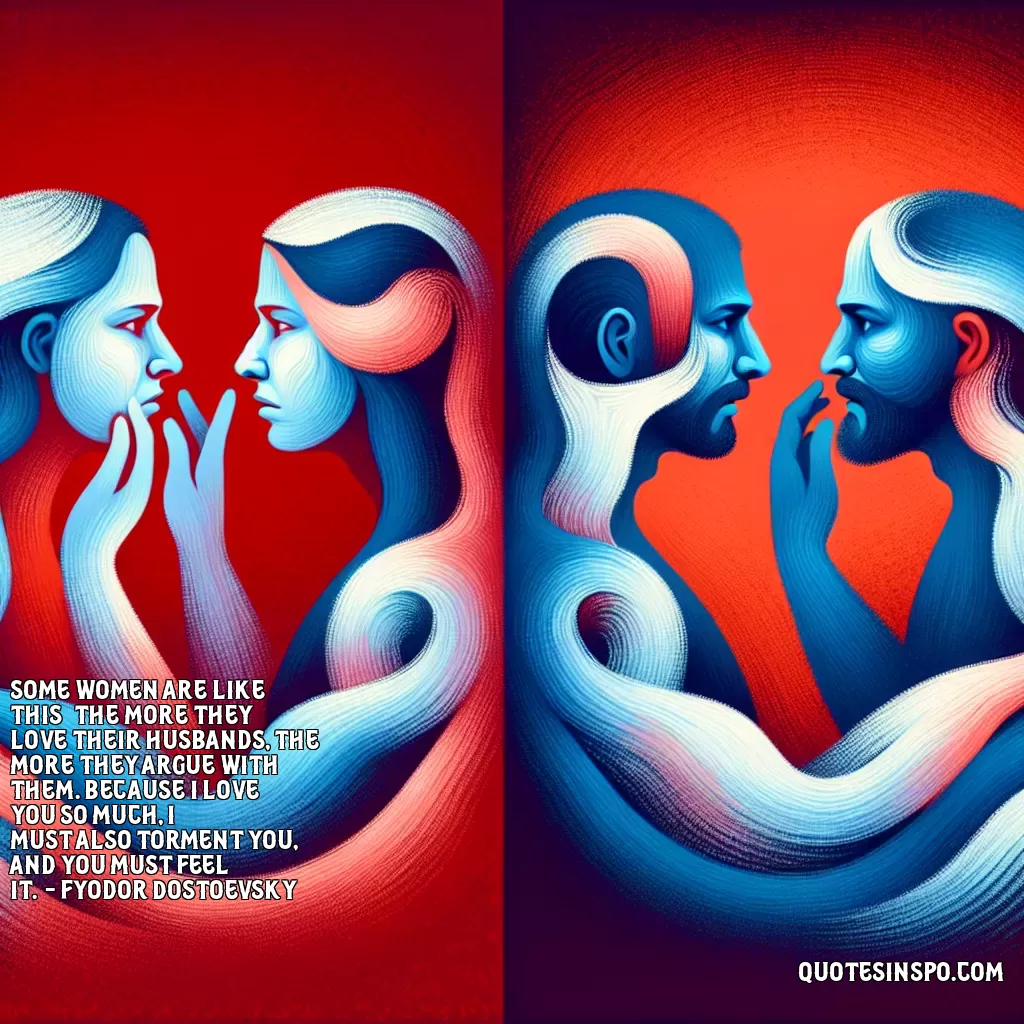
Some women are like this the more they love their husbands, the more they argue with them. Because I love you so much, I must also torment you, and you must feel it. - Fyodor Dostoevsky

Some women are like this the more they love their husbands, the more they argue with them. Because I love you so much, I must also torment you, and you must feel it. - Fyodor Dostoevsky
Fyodor Dostoevsky's quote delves into the complex dynamics of love and relationships, particularly highlighting an aspect that might seem paradoxical at first glance: the notion that deep love can manifest through contention and argument. This idea reflects the intricacies and multifaceted nature of human emotions and relationships. It suggests that some women, driven by profound love, engage in arguments not necessarily out of spite or displeasure, but rather as a means of deepening connection or fostering growth in their relationship. Dostoevsky may be suggesting that for these women, arguing is a form of engagement. It signifies a passionate involvement in the partnership and a desire for mutual understanding. Through this lens, arguing becomes an expression of care and an indication that they are fully invested in the health and future of the relationship. The mention of torment can be seen as the struggles and challenges that accompany any deep emotional bond, where both partners push each other, intentionally or not, toward greater self-awareness and improvement. Moreover, the phrase "you must feel it" implies an expectation that the partner be receptive to this intensity of emotion and engagement. It underscores a relational dynamic where emotional investment is intense and palpable, insisting that love is not passive but active, sometimes manifesting in confrontations meant to elicit responses and provoke thought. Ultimately, Dostoevsky’s quote speaks to the richness and sometimes tumultuous nature of love, suggesting that in certain relationships, expressions of love might come with challenging interactions. In these, love is demonstrated through not only tenderness and harmony but also through conflict and resolution, highlighting love’s capacity to encompass both comfort and challenge.
Quote By: Fyodor Dostoevsky
Fyodor Dostoevsky (1821–1881) was a renowned Russian novelist and philosopher, best known for his profound exploration of human psychology and morality. His major works, including "Crime and Punishment," "The Brothers Karamazov," and "The Idiot," delve deep into themes of guilt, faith, and the human condition, reflecting both his personal struggles and the turbulent socio-political landscape of 19th-century Russia. Dostoevsky's legacy endures as one of the greatest literary figures, influencing countless writers and thinkers worldwide.
Bio added on: 2025-02-18 18:49:19